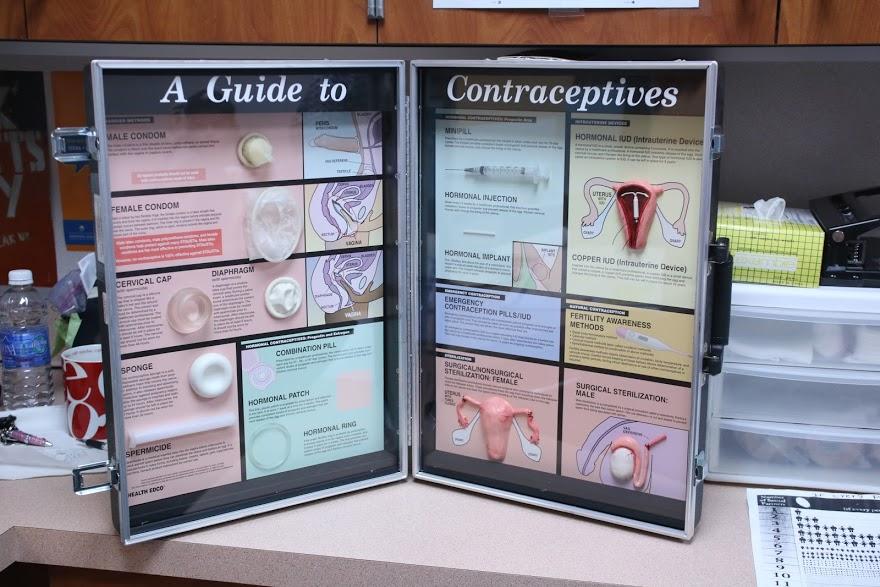Sex education: Foothill, California and the United States
November 30, 2015
Sex is no longer a taboo subject. Although there are discussions of sex between peers, many believe that these conversations should still happen inside of classrooms. With only 22 states requiring sexual education, some states not requiring information to be medically accurate, there is room for discussion about its true importance.

Sex is no longer a taboo subject. Although there are discussions of sex between peers, many believe that these conversations should still happen inside of classrooms. With only 22 states requiring sexual education, some states not requiring information to be medically accurate, there is room for discussion about its true importance.
Many different variations of sex education are taught, one of them being the “abstinence until you’re married” method. Every state except California has received funds for the abstinence programs.
Campus Nurse Mary Johnson feels that this method does not address enough topics.
“The family is an important part of children’s education but they also need to be exposed to other ideas so that they can make an informed choice around the whole gambit of issues surrounding sex education,” Johnson said.
In an article about the abstinence program, Advocates for Youth wrote that some information presented in these programs is incorrect, such as “women who have an abortion are more prone to suicide.”
They also brought into light that the program blurs the line between state and the church. The program’s origins are from Evangelical Christians who believe that the government should pour its money into abstinence-only programs instead of classes that teach about sex, contraceptives, abortions and sexually transmitted diseases (STDs).
Senior Whitney Tice finds fault with programs that do teach about contraceptives.
“The [current] program seems to send the message to students that having sex is fine as long as the guy wears a condom and the girl takes birth control pills to stay extra safe,” she said.
Tice feels abstinence is the wisest choice for a person’s health, not only physically but emotionally.
Tice doesn’t feel the abstinence-only method is a clash between state and church.
“Just because the bible says that God intended sex solely for marriage doesn’t mean teaching abstinence in schools has to be a sermon,” she said.
Some conservative states, such as Mississippi and Alabama, teach that homosexuality is wrong and illegal, while also banning the word “abortion” in a classroom setting.
Senior Cody Clark isn’t too happy with the teaching of the inherent wrongness of homosexuality. He believes everyone is entitled to their own opinions, but for opinions to be used to suppress people of the LGBT community is wrong.
“Teaching that homosexuality is illegal is providing false information and that’s not okay. Kids come to school to receive a proper education,” Clark said.
In the state of California legislation AB 329 bans abstinence-only programs, leaving room for teaching about human development and sexuality. The classrooms in California are to teach U.S. Food and Drug Administration (FDA) approved methods of reducing the risk of contracting STDs and preventing pregnancy. The California Department of Education (CDE) also states that HIV and AID prevention classes must be medically accurate, as well as the effectiveness rates of condoms and other contraceptives.
According to the CDE, all sex education courses must accommodate people belonging to the LGBT community. They state that the intent of the law is to encourage a child to develop healthy attitudes towards growth and development, body image, gender roles, sexual orientation, dating, marriage and family.
As of January 1, 2016, sexual health education will be mandatory in grades seven through 12 in California. It will combine HIV prevention with sexual health education, of which has been optional until now.
Along with the new program, parents also have the option of opting their child out of the course. They also stated that some districts were “picking and choosing” what they wanted to teach. Reproductive justice policy director Phyllida Burlingame stated in an Edsource article that the updated program “takes us to the next level.”
With much pushing, the topic of affirmative consent known as “yes means yes” is now being introduced within the new program. Some people took to Twitter to voice their view that consent and rape need to be discussed:
https://twitter.com/UnSlutProject/status/657291920725647360
"Because if we truly want to keep girls safe, we need to transform this culture of impunity into a culture of consent." —The First Lady
— First Lady- Archived (@FLOTUS44) November 4, 2015
https://twitter.com/GG5SOS/status/661301210549456896
Sophomore Ze’lee Sparks reacted with excitement about the upcoming consent courses in sex education.
“When someone says nothing, that does not mean ‘yes’ to having sex or to doing something that the person actually doesn’t want to do,” Sparks said.
[soundcloud url=”https://api.soundcloud.com/tracks/231773989″ params=”color=ff5500&auto_play=false&hide_related=false&show_comments=true&show_user=true&show_reposts=false” width=”100%” height=”166″ iframe=”true” /]
BBC 3 recently released a documentary called Sex on Trial. Twenty-two teenagers were put on a jury to decide whether or not a scenario involving alcohol and sex was consensual or if a crime had been committed. Most of the teenagers weren’t sure what consent really meant.
Many members of the Foothill community are excited about the upcoming classes, but concerned with the problematic courses in other states.
Health teacher Heather Ferris said that it’s concerning that some states don’t mandate sex education, and even more so that it’s not required to be medically accurate.
“I feel quite strongly that the sex [education] portion of health class at FTHS is extremely beneficial to the students,” she said.
Ferris also said that the team of health teachers on campus provides curriculum about a student’s health and choices that may affect it.
“Thank goodness the state of California and Ventura Unified in general has decided that abstinence only is not effective with our children, and we have that policy,” Johnson said. ”I’m grateful to be working in this district.”












